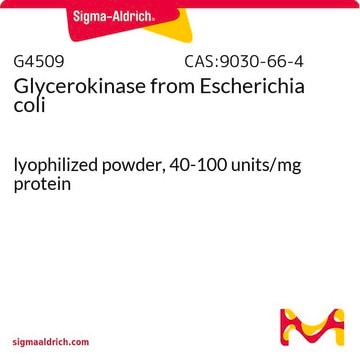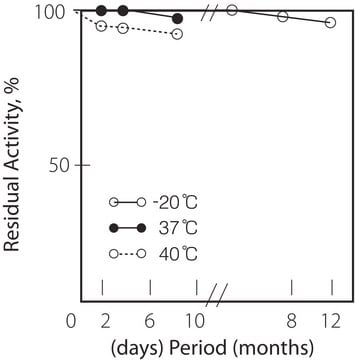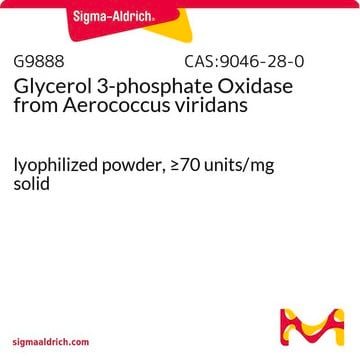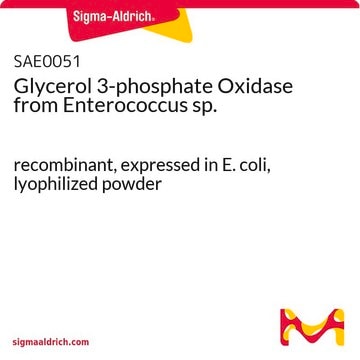G0774
Glycerokinase from Bacillus stearothermophilus
buffered aqueous solution, ≥75 units/mg protein (biuret)
Sinónimos:
ATP:glycerol 3-phosphotransferase, Glycerol Kinase
About This Item
Productos recomendados
biological source
Bacillus sp. (Bacillus steaarothermophilus)
Quality Level
assay
≥5.0 mg protein/mL (biuret)
form
buffered aqueous solution
specific activity
≥75 units/mg protein (biuret)
storage condition
dry at room temperature
color
beige
application(s)
life science and biopharma
storage temp.
2-8°C
Gene Information
Bacillus sp. ... glpK(89613566)
¿Está buscando productos similares? Visita Guía de comparación de productos
General description
Glycerol kinase is encoded by the GK gene on chromosome Xp21.2. Glycerol kinase is predominantly active in the liver.
Application
Biochem/physiol Actions
Unit Definition
Physical form
signalword
Danger
hcodes
pcodes
Hazard Classifications
Resp. Sens. 1
Storage Class
11 - Combustible Solids
wgk_germany
WGK 3
flash_point_f
Not applicable
flash_point_c
Not applicable
ppe
Eyeshields, Gloves, type N95 (US)
Elija entre una de las versiones más recientes:
Certificados de análisis (COA)
¿No ve la versión correcta?
Si necesita una versión concreta, puede buscar un certificado específico por el número de lote.
¿Ya tiene este producto?
Encuentre la documentación para los productos que ha comprado recientemente en la Biblioteca de documentos.
Nuestro equipo de científicos tiene experiencia en todas las áreas de investigación: Ciencias de la vida, Ciencia de los materiales, Síntesis química, Cromatografía, Analítica y muchas otras.
Póngase en contacto con el Servicio técnico









